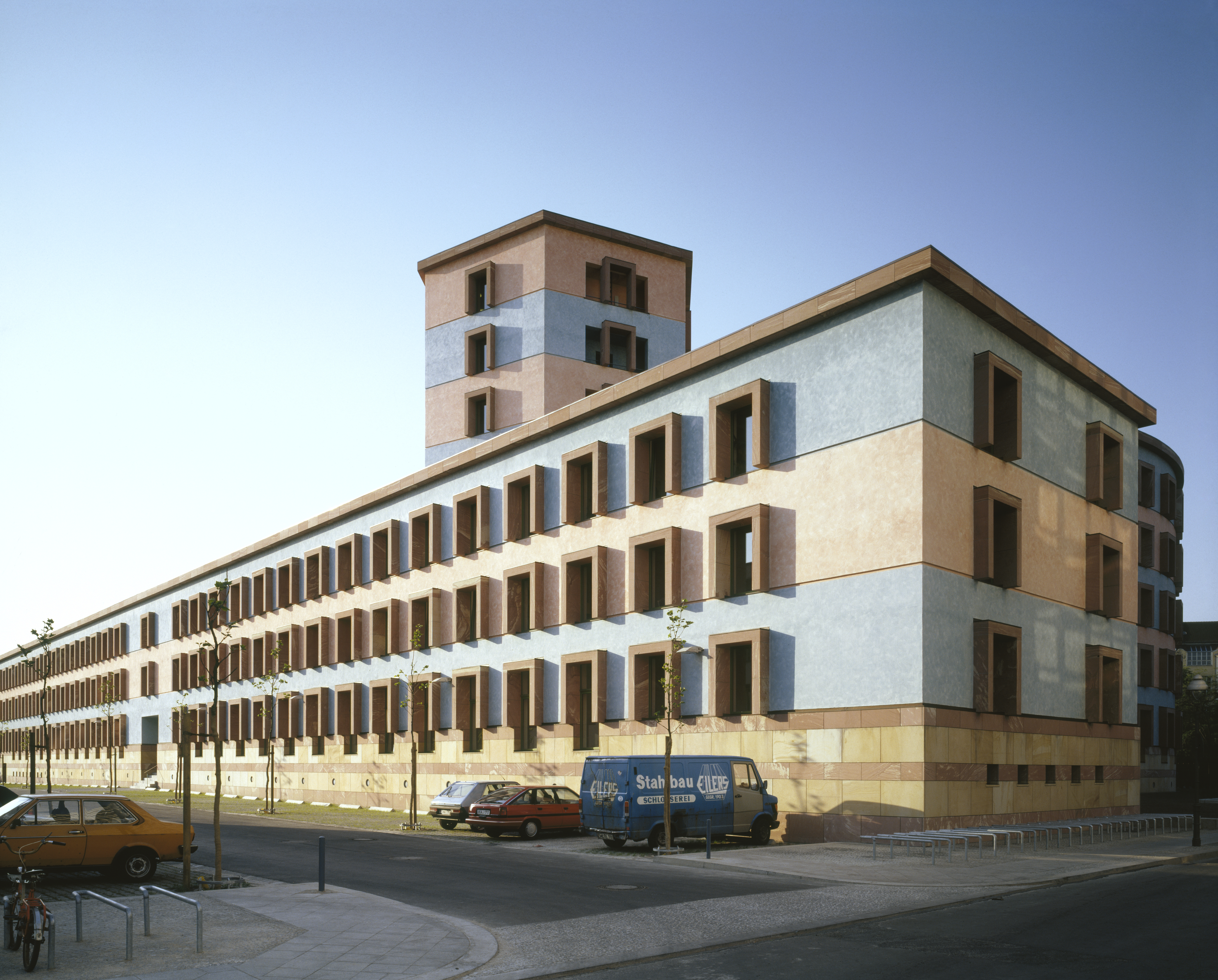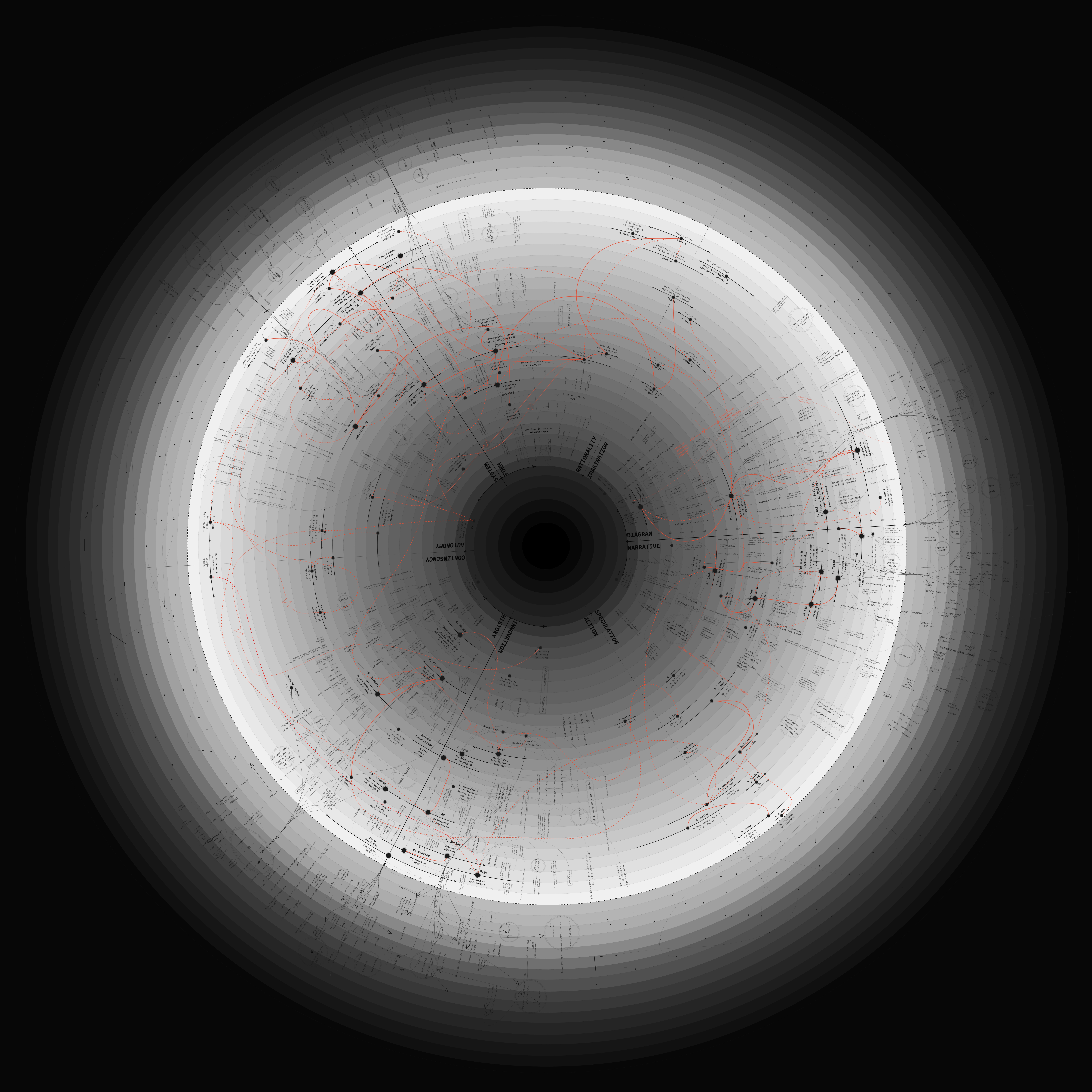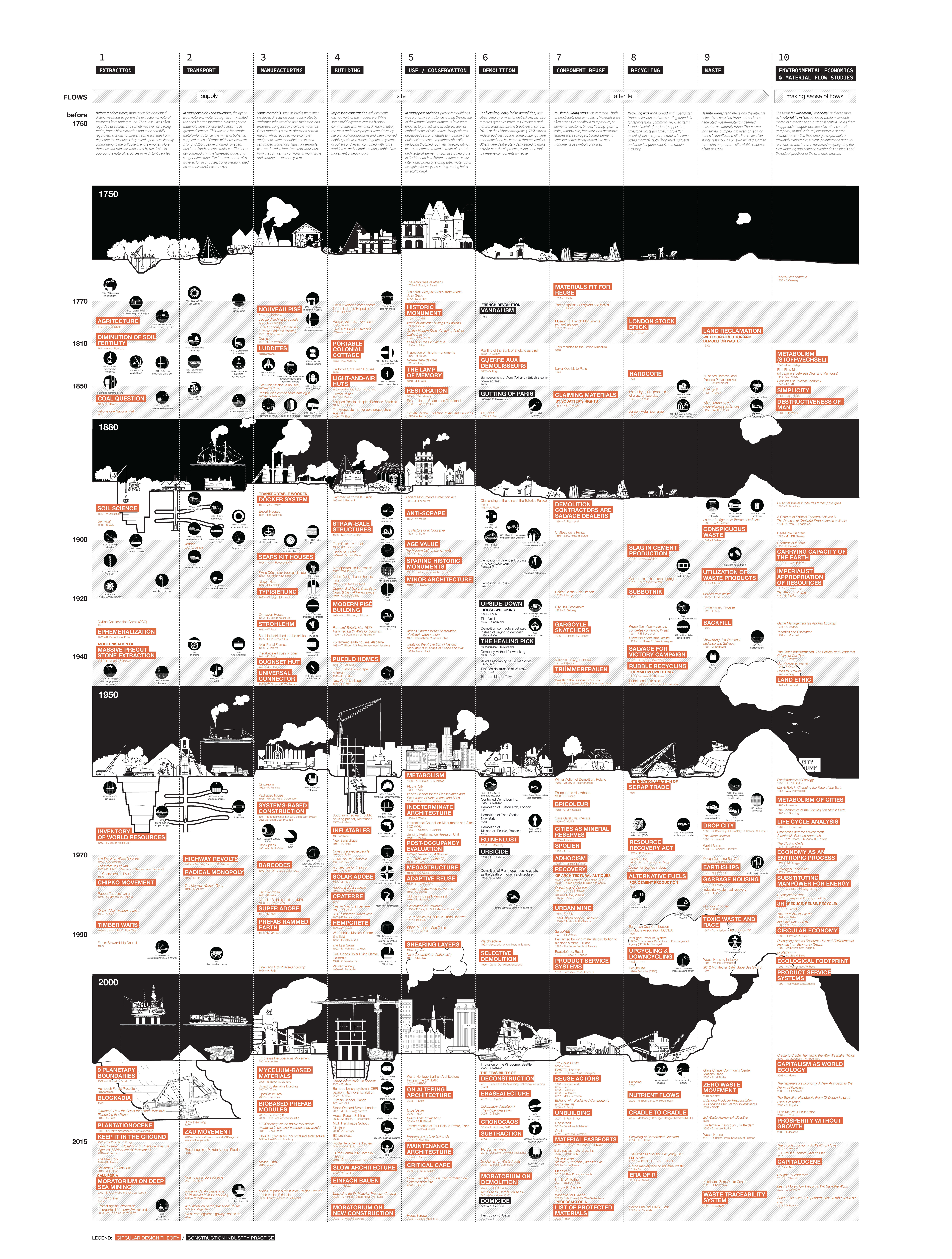"History/Theory"
November 14, 2017, 12am
New York 10002
USA
On November 14, 2017, e-flux Architecture will present History/Theory at e-flux. Join e-flux Architecture editor Nikolaus Hirsch and special guests Samia Henni, Mark Jarzombek, Reinhold Martin, Spyros Papapetros, Meredith TenHoor, Philip Ursprung, and Anthony Vidler for a series of presentations and conversations on the past, present, and future of architectural history and theory.
If there is no theoretical framework, no grand narrative, no normative system of values that offers architects orientation today as there might have been 50 years ago, there is a chance to learn from the mistakes of the past, map out new horizons, and work towards more inclusive, global futures. For we should not take for granted the ways in which architecture has been, is, and can be brought into history. It is essential to recognize the fact that the canon of architectural knowledge, which is still largely treated as the basis of the discipline and its pedagogy, is founded upon inherited practices that all too often contradict the very principles put forward by the institutions themselves.
The task that stands before us today very well might require unlearning what we know and treat to be history and theory in the first place. We need to rethink how it is formed, who it is for, what role it plays, and how it relates to architectural praxis and its cultural field more widely. It is not that architecture is currently in an a-theoretical or a-historical phase, but that it remains frustratingly irrelevant. It has become an academic discipline shaped by academic carriers for academics and not by or for architecture and its challenges. This is why history and theory has never been needed more than it is today, and in its most radical and nuanced forms.
History/Theory, a collaboration between the Institute for the History and Theory of Architecture (gta), ETH Zürich and e-flux Architecture, seeks to question the institutional implications of the fact that knowledge is produced through a plurality of forms and in a multitude of sites, and not just those sanctioned by privileged traditions.
Samia Henni received her PhD in History and Theory of Architecture from the ETH Zurich (with distinction, ETH Medal) and is currently Lecturer of History and Theory of Architecture in the School of Architecture at Princeton University.
Mark Jarzombek is Professor of the History and Theory of Architecture at MIT and a founder of the Global Architecture History Teaching Collaborative (GAHTC).
Reinhold Martin is Professor of Architecture at Columbia GSAPP, where he directs the Temple Hoyne Buell Center for the Study of American Architecture.
Spyros Papapetros is Associate Professor of History and Theory in the School of Architecture and the Program in Media and Modernity at Princeton University.
Meredith TenHoor is Associate Professor and coordinator of the history-theory curriculum at Pratt Institute's School of Architecture, as well as editor of the Aggregate Architectural History Collaborative.
Philip Ursprung is Professor of the History of Art and Architecture and Dean of the Department of Architecture, ETH Zürich.
Anthony Vidler is Professor and former dean of the Irwin S. Chanin School of Architecture at Cooper Union, and Vincent Scully's Visiting Professor of Architectural History in the School of Architecture at Yale University.
For more information, contact program@e-flux.com.




















